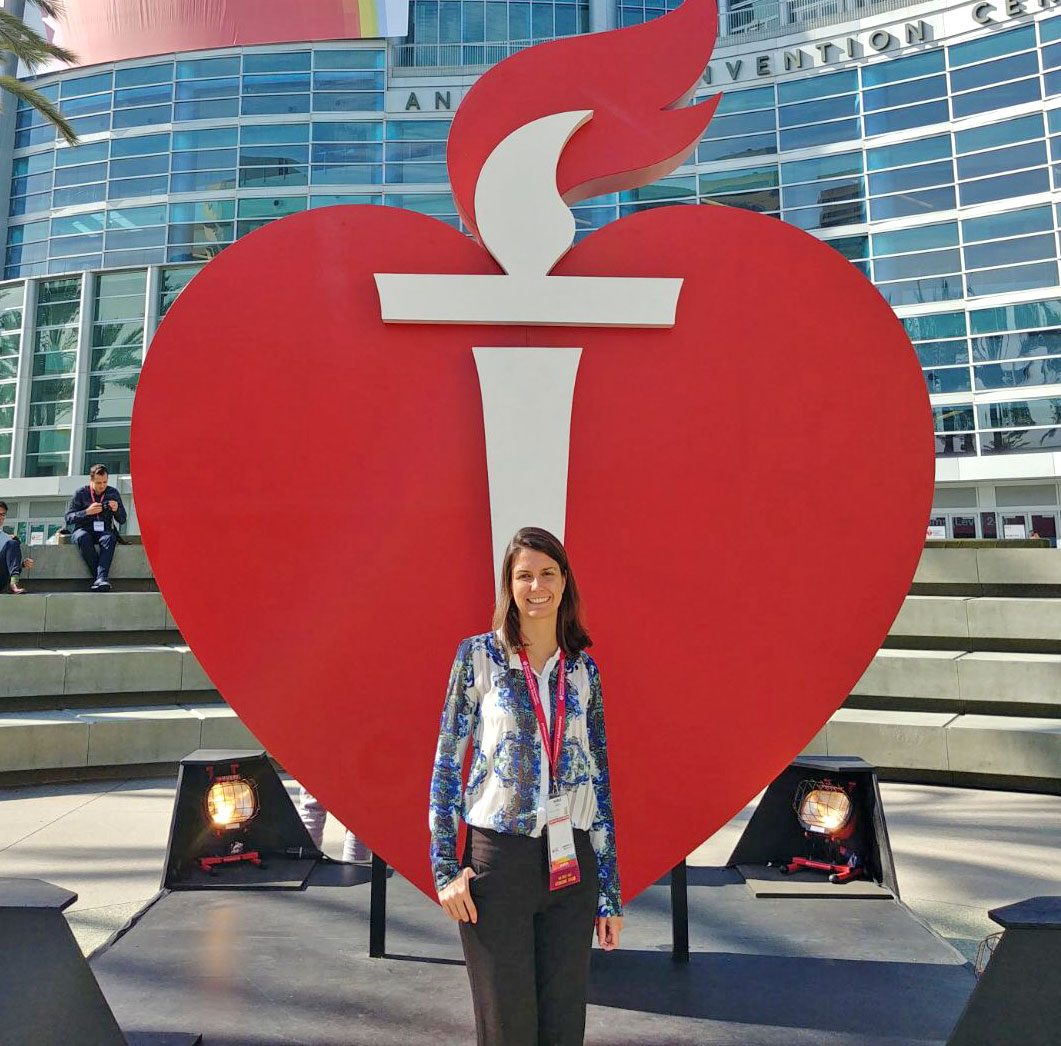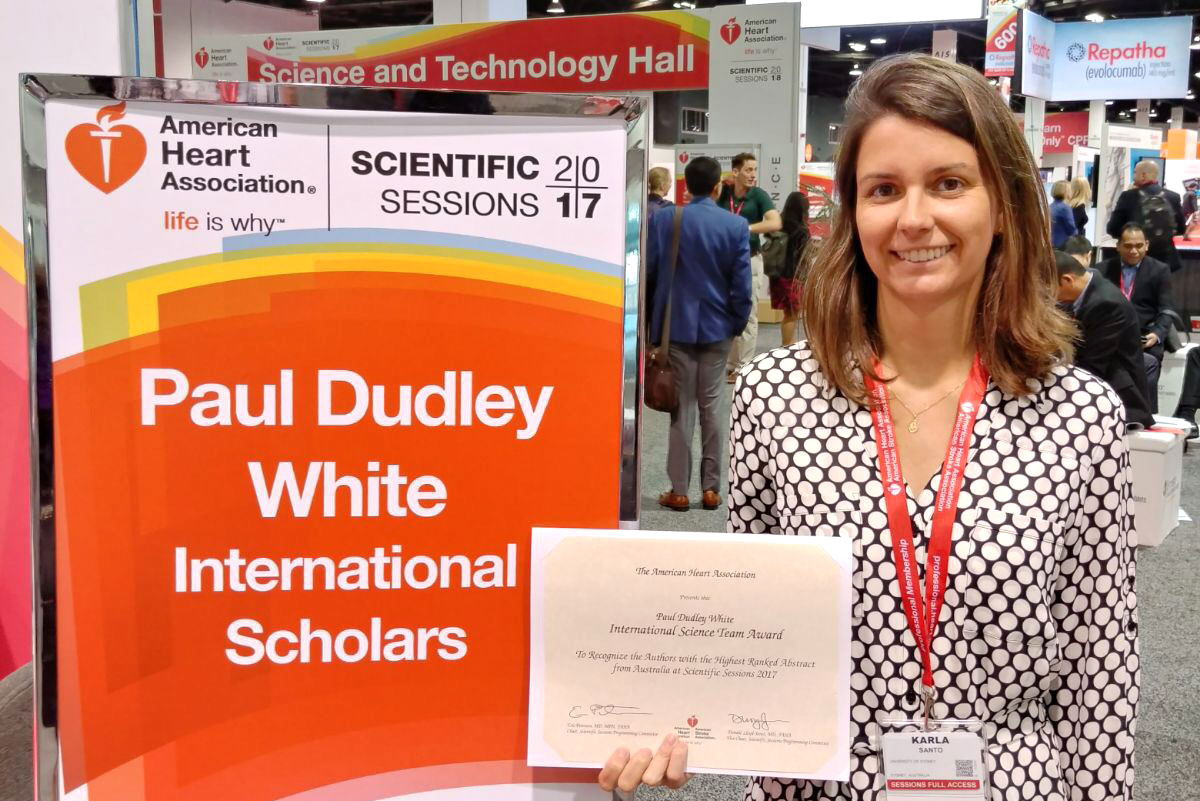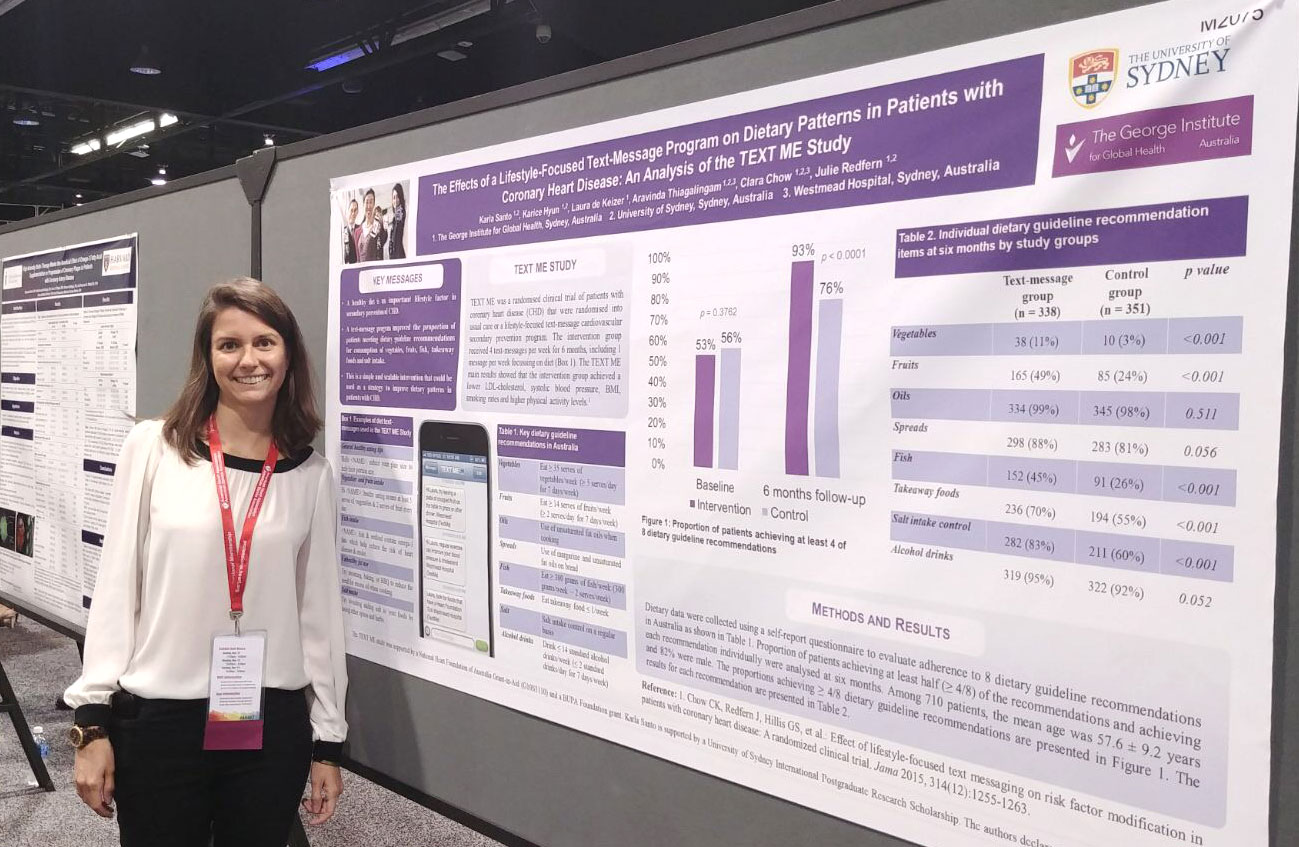
Karla Santo: preventing heart disease through mobile technology
Meet Karla Santo, Research Fellow working in cardiovascular research.
How long have you been working at The George Institute?
I’ve been at The George for almost four years now.
What attracted you to working here?
As a cardiologist trained in Brazil with little training in research, I was looking for an opportunity to learn more about medical research in Australia. In the search for this opportunity, I got in contact with Prof John Chalmers and learned more about The George Institute. I was amazed by the incredible work being done at the Institute and wanted to be part of it. Prof Chalmers gave me the opportunity to come to The George to do a research internship for a few months. During this internship, I started working on a few projects in the Cardiovascular Division and, after a short period of time, I decided that I wanted to enrol in a research degree. I then started my PhD degree in August 2014 and I was fortunate to be awarded an International Postgraduate Research Scholarship to support my studies.
How would you summarise the research you do and the difference it will make to healthcare?
My PhD is looking at mHealth, which is the use of mobile devices for healthcare, to improve prevention of heart disease. As we know, heart disease is the leading cause of death in Australia and worldwide. People with history of a previous heart attack are at increased risk of having another event and are more likely to die in this subsequent event. Therefore, it is important to prevent those people from having another cardiovascular event. Prevention strategies include eating a healthy diet, being physically active, and taking cardiovascular medications every day. mHealth has the potential to improve prevention of heart disease by delivering interventions via mobile devices to provide information, motivation, and reinforcement for patients with heart disease to achieve a healthy lifestyle and adhere to life-saving cardiovascular medications.
You’ve just returned from the American Heart Association (AHA) conference. What were you doing there?
I was presenting some of my PhD work that I’ve done with my supervisors A/Prof Julie Redfern and Prof Clara Chow on the TEXT ME Study. This was a study looking at the impact of a lifestyle-focussed text-messaging programme on cardiovascular risk factors in patients who had a previous heart attack. The work that I presented during the AHA conference was focussed on the diet results, in which we showed that the TEXT ME intervention improved the number of patients adhering to the dietary recommendations in Australia, in terms of consumption of vegetables, fruits, fish, salt and takeaway foods. This work was awarded the Paul Dudley White International Scholar Award for the highest ranked abstract from Australia and was highlighted in the AHA Scientific Sessions Daily News.

Earlier this year you went to South Africa as part of the World Heart Federation Emerging Leader program. What did this involve?
The World Heart Federation Emerging Leaders Programme was created in 2014 to form and develop a group of experts to collaborate, research and take leadership in helping reduce premature mortality from cardiovascular disease. I was selected to be an Emerging Leader 2017 together with another 24 candidates from 19 countries. The 2017 cohort was the fourth WHF Emerging Leaders cohort and it focussed on improving access and adherence to cardiovascular medicine, which relates to some of my PhD work on using mHealth to improve medication adherence. As part of the programme, we attended a think-tank seminar for a week in June in Cape Town, South Africa. This was an amazing experience, in which I met many people from around the world who have the same desire to improve cardiovascular disease healthcare and reduce CVD mortality worldwide. During the think-tank seminar, we had to develop a proposal for a project related to the focus of programme and the WHF has provided seed funding for this project to be conducted. Myself, Dr Emily Atkins from TGI and other researchers from Nigeria, Kenya, US, India, and Nepal are now conducting a project to improve access to medications for patients with high blood pressure in Nigeria.
What are your career plans after your PhD?
I plan to go back to clinical practice, but also to continue to do research in cardiovascular disease prevention.
What motivates you most in your work?
To help people have a healthier life.
To explain to people what I do I say…
I am trying to prevent people from having heart disease through mobile devices technology.
My biggest achievement so far is…
Successfully completing my own small randomised clinical trial as part of my PhD studies. After two long years of hard work, since the early stages of writing the study protocol through the hardship of patient recruitment and follow-up, it is a big achievement to be able to write the MedApp-CHD study results. In addition, I was recently awarded the John Chalmers Doctoral Award at TGI. This award has a special meaning to me, as I mentioned before, Prof John Chalmers was the first one to open the door to this amazing clinical research world previously unknown to me, and the one who first encouraged me to kick-start my research career.





